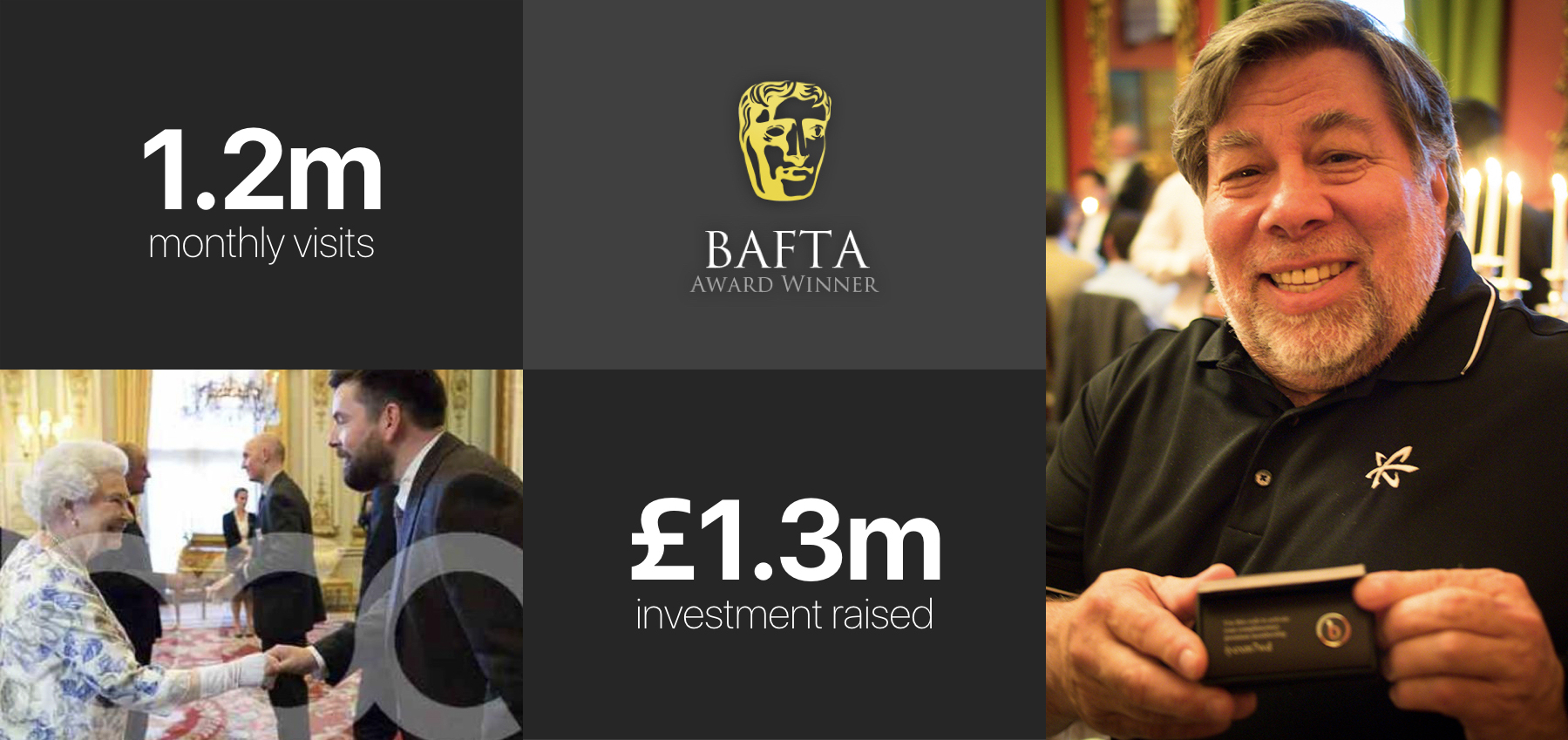This is a transcript of a talk I delivered last week at a Creative Edinburgh Talking Heads event, which saw six of us explain how failure factors in our work. I wouldn't normally write out something like this in such detail, but it was one of those insanely stressful 20x20 Pecha Kucha style talks and I wasn't leaving anything to chance. I hope you enjoy.
Hello, my name is Joe. I’m a designer who works with tech startups on their products, strategy, branding and investment material.
In the next 400 seconds I’m going to tell you my life story and everything I’ve learned so far. I’ve done a few things right but I’ve had one gigantic failure, and I hope after listening to me you’ll be ready to have one too. So, here goes...
My life can be divided into six distinct periods:
Once I’d learned to walk and talk I spent 14 years at school wishing I wasn't there. I left at 16 and got a job as a trainee sound engineer, which was when I discovered you can work at things you really enjoy and get paid for it. Five years later I started my first company.
But before I get onto that, I want to rewind to 1982, when my older brother and I got one of these as a joint Christmas present:
It had 16k of memory, a BASIC programming cartridge and some shitty games. If I hadn’t received this gift I don’t think I’d be standing here today. You see, the Atari 400 made me realise that I enjoy using technology to make things.
Fast forward thirteen years to 1995, I was 23 years old and the Internet was about to become a thing, and I set up a creative agency called Rocket.
As the Internet pervaded society, our work quickly shifted off paper and onto the screen. We built our first website in 1996 and enjoyed many years of success. In 2004, as a distraction from this day job, I decided to set myself the challenge of taking and sharing a photo every day.
So I built a simple website one rainy Sunday afternoon, and I called it Blipfoto. Within a year or two I’d built a small but dedicated following and I decided to turn this idea into a product which anyone could use to create their own daily photo journal.
Almost in spite of us it grew like crazy, often knocking our clients’ websites offline under the weight of its traffic. So in 2010, we decided to spin Blipfoto out as a company in its own right, raised some investment and left our agency behind.
Things continued to grow like wildfire—our audience quadrupled in size and we closed two more rounds of investment.
By 2014 Blipfoto was doing a million monthly visits, we’d won a Bafta, we’d raised more than a million in investment, I’d met the queen and Steve Wozniak—the father of the personal computer— was among our users.
But while we had users across the globe, half of our traffic was still from the UK and we firmly set our sights on America.
That same year I bumped into a man called Scott Hardy while speaking at an event in LA.
Scott is the CEO of Polaroid—he was looking for a way for this iconic brand to become more relevant online and we needed a way to break America and beyond. So in January 2015 we announced a worldwide partnership.
For a couple of months things looked good. Then this happened:
As the numbers started rolling in, we realised our US launch had been a bit of a damp squib. We were desperately underfunded and didn’t have the cash to keep investing in marketing, then an investor we had lined up took his offer off the table, kicking off a sequence of events which ended in the board handing the company over to the liquidators.
It was a very strange time, and weirdly similar to what happens when a relative dies; you find yourself dealing with somber men in suits who’ve made unusual career choices, and reminding friends and family that nobody died and it was always the most likely outcome.
It was of course horrible shutting the doors but after two years of immense pressure a weight did lift from my shoulders and bring some welcome relief.
One of our most prolific high-profile users was Mike Russell, a Scottish Government minister. Remarkably, he put forward a parliamentary motion commending our vision and pressing to secure the product's future.
There’s a whole other story to tell there but almost exactly a year later Blipfoto was saved by a small group of its users and now lives on as a Community Interest Company.
For the first time in 20 years I thought I might actually have to get a job, so I sat down in front of a blank screen and tried to write a CV. It was incredibly daunting, because I didn’t really know what I was good at. I’d done lots of things, but who was I? What do I do for a living? What did I stand for?
Then it occurred to me, everything I’ve done has been about blending creative ideas with new technology and taking them to market.
I get most excited when those three things intersect and it turns out that blend of expertise is in high demand. So I’ve been holed up in Codebase for the last couple of years, helping other startups get their shit together.
I’m also Head of Product at CivTech, a new tech accelerator run by the Scottish Government which is breaking down the huge barrier that exists between small innovative companies and public sector agencies.
Big beasts like the NHS can finally tap into the kind of thinking which is in abundance in this room, and early stage companies get the credibility these customers bring.
So what did I learn from my epic fail? Well, the first thing was quite surprising:
I expected to be ostracised after Blipfoto collapsed. After all, I’d lost a lot of other people’s money and fucked something up many thought would be a massive success. But actually the opposite has been true—my failure is a huge part of why people now want me to work with them.
I’ve learned that I need three things to feel fulfilled at work: making money, a healthy work / life balance and being on a journey, heading for a goal or a prize at the end of the road. All too often I think we compromise one or more of these things in pursuit of the others, so now I always strive for a balance of all three.
For many years I was Mr. Blipfoto; the product and company had become core parts of my identity. That’s perhaps the ideal way for your customers to think of you but when it was gone I really had to do some soul searching to reframe my life. As a result I’m much more clear now about who I am as an individual and what I bring to the party.
If you’re pursuing investment it’s easy for that to become your job. With Blipfoto, I spent about 70% of my time on that side of things—pitching, managing board meetings, keeping investors updated, and so on. The product became a by-product, and the very thing which underpinned our success pre-investment lost a lot of my focus.
When you're working hard on a project, company or product your self-confidence and self-worth are naturally measured by its success, and when it fails it’s easy to feel cast adrift. You lose that barometer against which you’ve been measuring yourself. So I think it’s important to believe in yourself and keep the faith.
Finally, and above all, it’s been scientifically proven that us failures are far more likely to succeed.
Although I’m very happy with what I’m doing now, I do intend to launch a new startup in the next couple of years—I’ll really enjoy putting this one to the test.




















